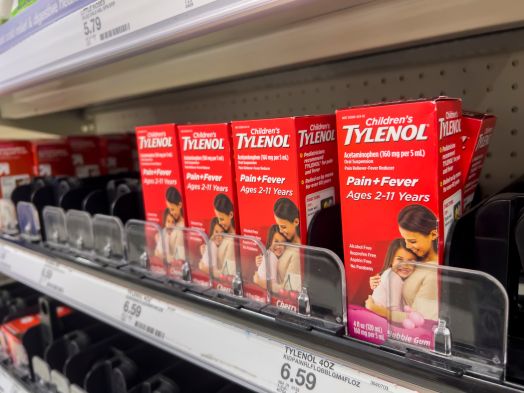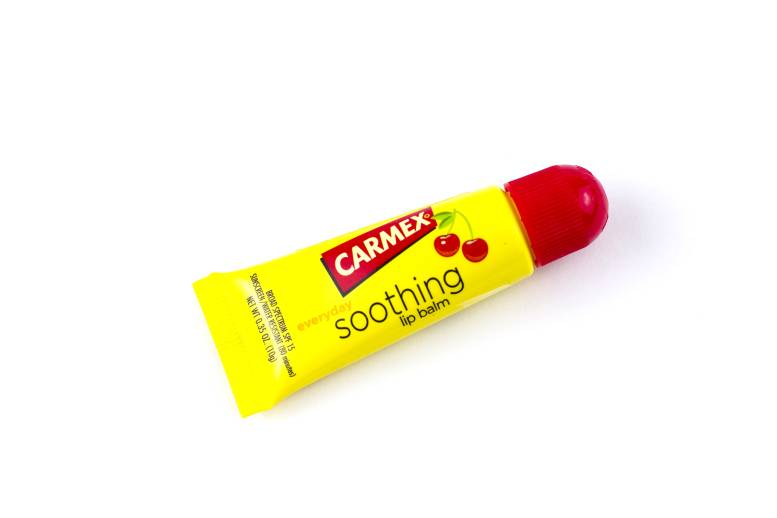When their young kids are sick, many parents reach for baby Tylenol to help their children feel better. A dog may watch his “kids” eating the medication and want to try some, too! But what happens if a dog eats baby Tylenol?
Connect with a verified veterinarian in minutes. Licensed vets are available 24/7 to answer your questions. No need to worry about your furry family member.
Has your dog eaten baby Tylenol? Are you worried the baby Tylenol will make your dog sick? If so, you’ve come to the right place. We understand it can be scary when your dog eats something like this.
We’ve gathered information about baby Tylenol and whether it can make a dog sick. Let’s get started!

What is Baby Tylenol?
“Baby” Tylenol is called Infants’ Tylenol. Infants’ Tylenol is a liquid medication used to treat pain and fever in young children. This medication contains 160mg of acetaminophen.
Baby Tylenol is available in grape and cherry flavors.
While baby Tylenol is safe for children, what about dogs? What happens if a dog eats baby Tylenol?
Baby Tylenol & Dogs
Unfortunately, baby Tylenol is toxic to dogs. The acetaminophen in this product can cause liver damage and decrease the red blood cell’s ability to carry oxygen.

Review symptoms, medications & behavior to keep your pets healthy with a Vet Online in just minutes.
Ask a Vet Live NowSymptoms of Baby Tylenol Ingestion in Dogs
You may notice these symptoms if your dog has eaten baby Tylenol:
- Panting
- Vomiting
- Drooling excessively
- Rapid breathing
- High heart rate
- Depression
- Weakness
- Abdominal pain
- Refusing to eat
- Brown or blue mucus membranes
- Swelling of the face, paws, and forelimbs
If you notice these or other concerning symptoms in your dog, call the vet immediately. This is an emergency.
Treatment of Baby Tylenol Toxicity in Dogs
The vet may first work to decontaminate your dog’s system by inducing vomiting and using activated charcoal. These methods work to remove the toxin from your dog’s system.
In addition, your canine companion may require an IV with fluids. The fluids also work to flush the toxin from your dog’s body.
In severe cases, your dog may need to be hospitalized until he’s in stable condition. The vet will treat other symptoms as they arise. For instance, the vet may give your fur baby may need vitamin C and liver protectants, along with other medications to flush out toxins. Dogs who suffer from liver damage may need to take vitamin K, dextrose, and plasma transfusions.
The prognosis is best for dogs who receive prompt treatment after eating baby Tylenol. In the future, it’s best to keep this and other medications out of your dog’s reach. You’ll both be happier for it!
Connect with a verified veterinarian in minutes. Licensed vets are available 24/7 to answer your questions. No need to worry about your furry family member.

Kim
Kim is a talented author, who loves animals especially dogs. She engaged in writing books and articles relating to animals a decade ago. Kim resides in Chicago with her husband and son. The family is the proud owner of a dog and a parrot (Jack and Lily). Kim wanted more than these two pets, but her husband put his foot down... She often visits elementary schools to talk to the kids about what she learned about pets and how they could learn from them.
Review symptoms, medications & behavior to keep your pets healthy with a Vet Online in just minutes.
Ask a Vet Live Now




